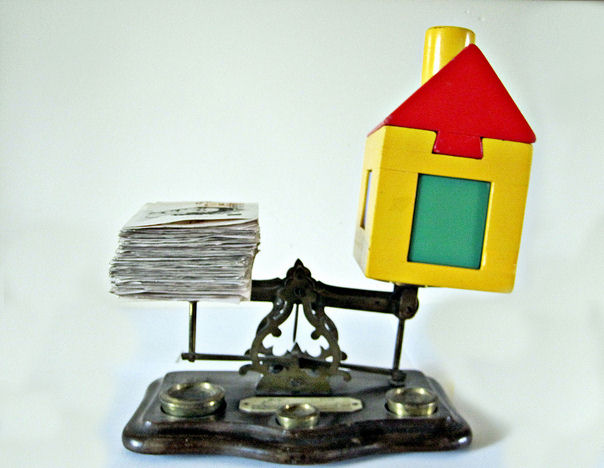Buying a home is a joyous and life-altering event that should not be taken lightly. That said, it is important to make sure you do not get in over your head when you buy a home because the consequences can be devastating. You certainly do not want to end up losing your home simply because you did not take the appropriate steps before purchasing it. The best thing to do before going house hunting is to determine how much house you can afford to buy, that way you can look for homes in your price range. The following tips can help you figure out how much home you can afford.
Analyze Your Financial Situation
It is a good idea to sit down and analyze your financial situation before you begin house hunting. Gather your bills and figure out how much money you are currently spending each month. Compare that figure to the amount of money you have coming in (income) to see if you have enough money to add a mortgage into the equation (remember that you won’t have to pay rent anymore). [editor’s note: Use our Rent vs Buy Calculator to compare costs, it generates a great report] If you feel that you have enough income to reasonably afford a new home, the next thing you should do is visit a lender to see what they have to say about it.
Visit Your Lender

After you’ve personally analyzed your financial situation, you should make an appointment with your lender to see if they will pre-approve you for a home loan. Getting pre-approved will make the buying process easier once you’ve found the home of your dreams, as well. When you visit your lender, they will likely ask you to bring all of your financial documents, bills, and proof of income. They will run a credit check and determine your debt-to-income ratio, which is a very important part of the loan approval process. Your debt-to-income ratio is how much debt you carry in comparison to your income. Most lenders require your debt-to-income ratio to be somewhere around 40%, meaning your total debt is no more than 40% of your total income. Keep in mind that the allowable percentage of your debt to income can vary from lender to lender. Once your lender determines your debt-to-income ratio, they will let you know how much home you can technically afford based on the figure. In other words, the amount of money you have left over after all of your monthly bills are paid will affect how much home you can afford. Once you are pre-approved, your lender may discuss the various home loan options available to you.
Types of Loans
Luckily there are various types of home loans available. Depending on your personal financial situation, your lender may suggest a certain type of Mortgage for you. Nowadays, a large percentage of new home loans are backed by the federal government and require a much lower down payment amount than conventional mortgages. Usually, the required down payment amount for an FHA loan is between 3.5% and 5%, instead of 20% for regular mortgages. The Federal Housing Administration (FHA) insures mortgages that are borrowed from an approved lender, meaning lower down payments and often lower interest rates. These types of home loans have become increasingly popular ever since the economy took a turn for the worse. If you have the funds to put down a large down payment, you may still qualify for an FHA loan. There are various other home loans available as well, and your lender will be able to help you choose the one that is right for you.
Other Things to Consider
You must also consider homeowners insurance and taxes if you are thinking of buying a new home. Most lenders are able to combine these things with your actual monthly house payment so you only have to pay one amount for everything. But if your annual property taxes are $2400 and homeowners insurance is $1800 that will add $350/mo to your mortgage.
Now that you know how to determine how much home you can afford, you should be a little more confident when it comes time to search for a house. When you know ahead of time what you can afford to pay, it should make the whole home-buying process a little less stressful.

Years ago experts recommended that you not spend more than 25% of your income on your mortgage payment. Then Real Estate prices started climbing and the recommendation was raised to 30% and then 35% and then homeowners got themselves into trouble and we started seeing foreclosures everywhere.
These are just rules of thumb but a key factor is how much you can comfortably pay without straining your budget. You don’t want to lock yourself into a situation where you risk foreclosure. Another factor you need to take into consideration besides income is debt. How much credit card debt do you have? Are you able to save anything?
Back in the conservative old days, the FHA required a 10% down payment… now they only require 3.5%. I figure, if you can’t save up 10% you probably can’t afford a house… don’t forget when you buy you are responsible for the maintenance not the landlord. One interesting factor taken into consideration by the rent vs own calculator (you can enter in your own numbers) is not only the current mortgage interest rates (currently very low) but also the current rate paid on a savings account (almost non-existent) this makes buying more profitable because the borrowing costs are so low and you don’t earn anything on savings.
Photo Credit: Images of Money
See Also:
